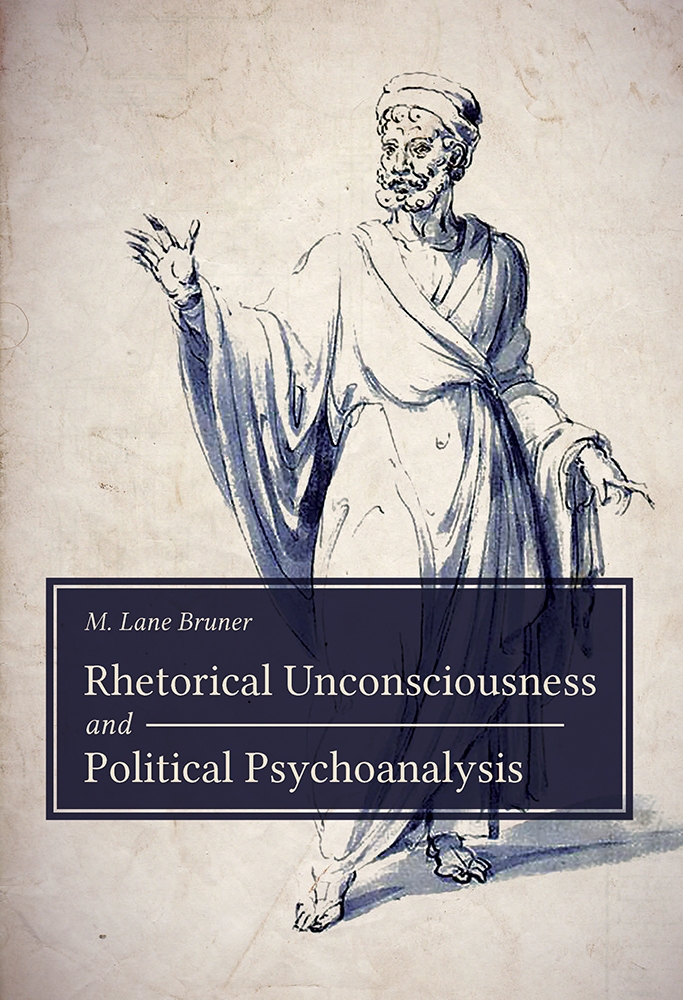Black History Month Sale: 40% off all books, plus FREE SHIPPING on all U.S. orders over $50 | Use code JBHM26

Size: 6 x 9
Pages: 244
Illustrations: 1 b&w halftone, 6 tables
M. Lane Bruner
The inclusion of this book in the Open Carolina collection is made possible by the generous funding of
"This text is a well-documented analysis of the contours of our collective rhetorical unconscious. Bruner has interwoven theoretical concepts in crafting a provocative account of our rhetorical unconscious and the role of psychoanalysis in investigating and critiquing its collective presence as the backdrop against which we experience life."—Raymie E. McKerrow, Ohio University
"Building upon a vast range of scholarship in rhetorical theory and critical theory, this book offers the most developed framework to date for analyzing rhetoric at the unconscious level of material structures and power formations. The book should be praised not only for its cutting-edge theoretical and methodological innovations but also for its insightful, historically-informed case studies."—Joshua Hanan, University of Denver
"This work is a fresh and illuminating contribution to the vital critical project of reimagining rhetoric beyond the confines of intentional and strategic models of influence without giving up the very idea of persuasion as a practical art. Bruner offers a promising way of converting well-known impediments to intentional theories of persuasion into productive resources for a new and expansive rhetorical remit."—Michael Kaplan, Baruch College, CUNY
Copyright 2026
Website By Morweb.org